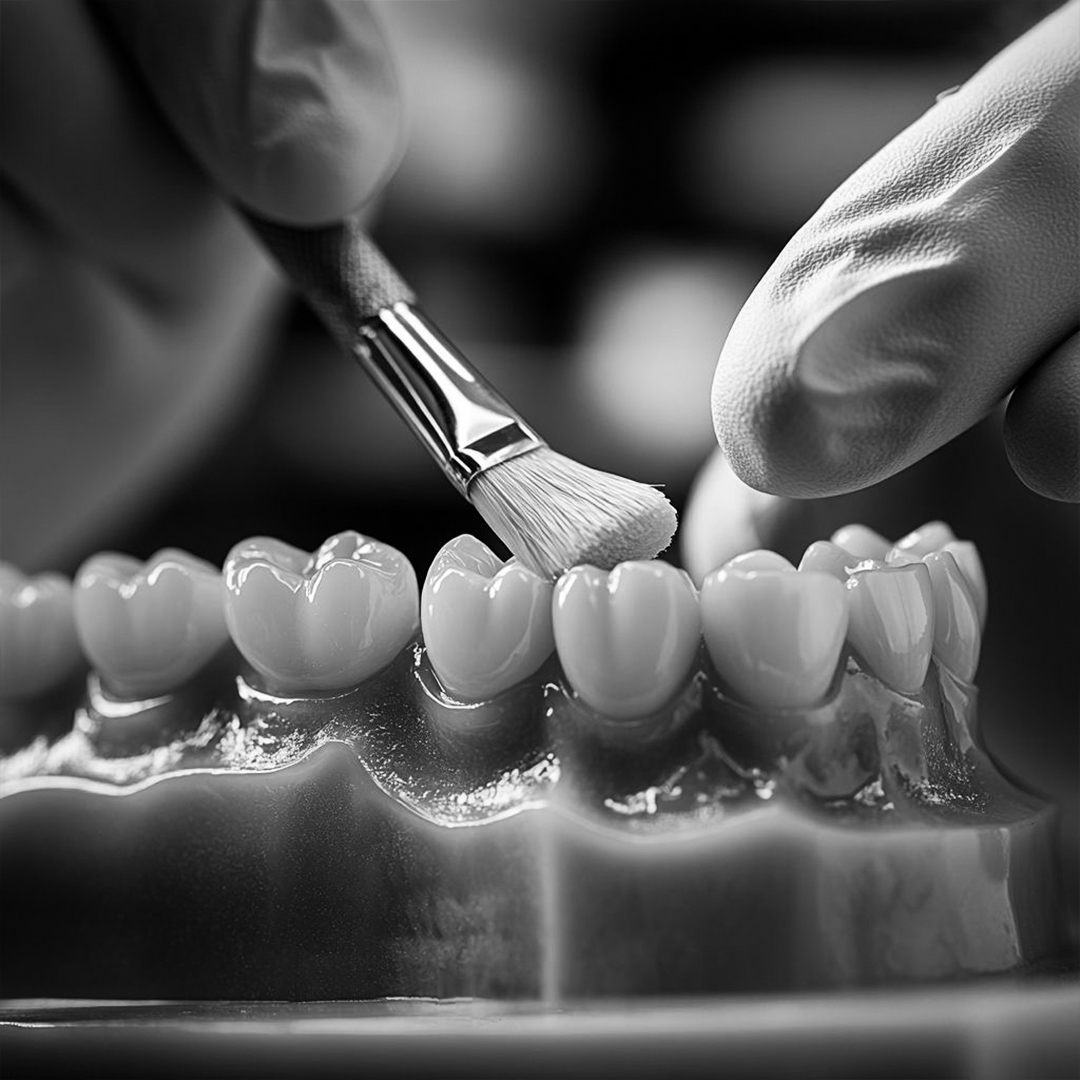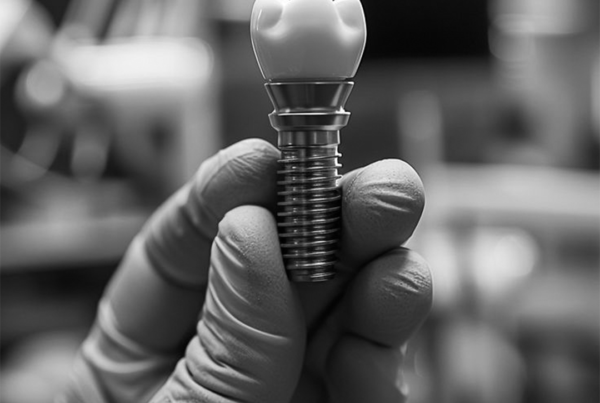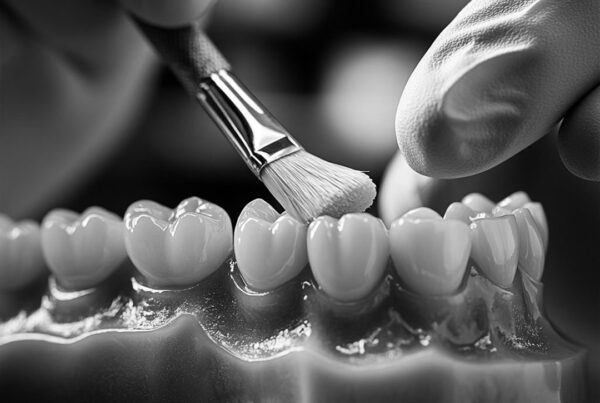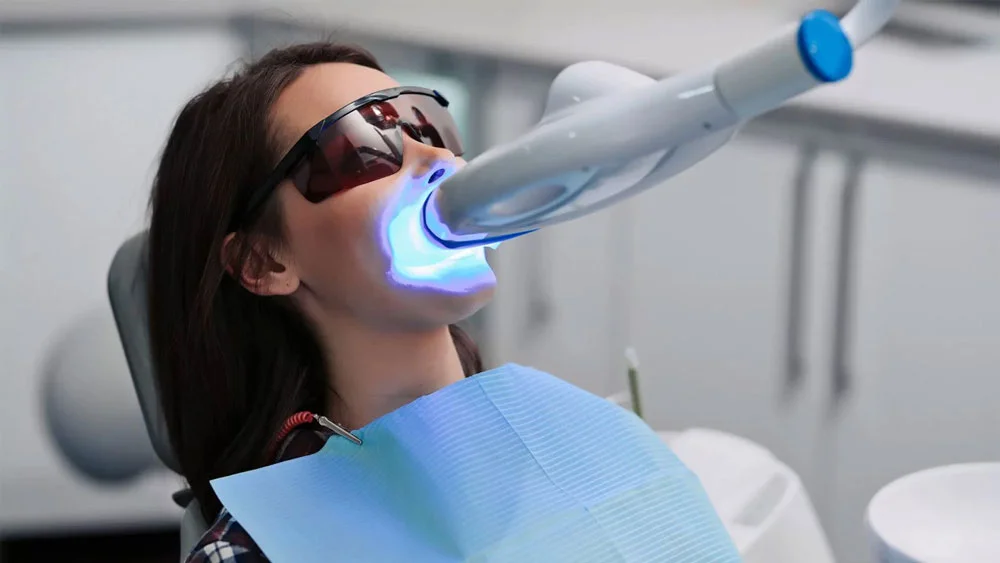
Teeth whitening is an aesthetic dentistry procedure performed to lighten the color of teeth and achieve a whiter smile. Over time, teeth can become yellow or dull due to various factors. These factors include age, genetic characteristics, smoking, certain medications, consumption of colored beverages such as tea, coffee, wine and tooth decay. Teeth whitening is ideal for correcting these discolorations and providing a more aesthetic appearance.
Teeth whitening is usually applied in two ways: office whitening and home whitening. In-office whitening is a method that the dentist performs in a clinical setting and usually provides faster results. Home whitening, on the other hand, is the use of a whitening gel recommended by the dentist in a personalized tray. This method allows patients to apply it at home according to their own timing.
Both methods can be effective, but in-office whitening usually provides faster and more dramatic results.
Advantages
- Fast Results: In-office teeth whitening usually provides noticeable results in just one session.
- Reliability: When performed by dentists, the process is safer and more effective.
- Personalized Treatment: When the dentist assesses the situation and creates a personalized whitening plan, it helps to achieve the best results.
- Long Lasting Effect: The results can be maintained for a long time with regular care after the application.
- Minimal Side Effects: When proper techniques are used during application, there is minimal risk of side effects on tooth and gum health.
Disadvantages
- Tooth Sensitivity: Some patients may experience temporary tooth sensitivity after whitening.
- Permanence of Results: Whitening results may change over time; habits such as smoking, consuming coffee or tea can lead to loss of whiteness.
- Cost: In-office whitening is usually more costly; at-home whitening may be a more economical option.
- Gum Irritation: In case of incorrect application or excessive use of gel, irritation of the gums may occur.
- May Not Be Suitable for All Teeth: Whitening may not be suitable for people with some dental problems; therefore, a dentist’s evaluation is required first.
10 Frequently Asked Questions
- What is teeth whitening?
- Teeth whitening is an aesthetic dentistry procedure to lighten the color of teeth.
- How long does the whitening procedure take?
- In-office whitening is usually completed within 1-2 hours, while at-home whitening can take a few days to a few weeks.
- Is teeth whitening painful?
- Most patients experience no discomfort during the procedure; however, some may experience temporary tooth sensitivity.
- How long do whitening results last?
- The results vary from individual to individual, but can usually last between 6 months and 2 years.
- Who can have teeth whitening?
- Anyone with healthy teeth and gums can have teeth whitening, but it may not be suitable for people with certain health conditions.
- How is home whitening applied?
- You can apply the special whitening gel given by your dentist at home by using it in a specially prepared tray.
- Do teeth whitening results look natural?
- Yes, with the correct application, the results provide a natural appearance; excessive whitening can lead to undesirable results.
- What should I do after the whitening procedure?
- It is recommended to avoid food and drinks for a few hours after the procedure; also, avoid extremely hot or cold foods.
- Does teeth whitening cause allergies?
- Teeth whitening is generally safe; however, some individuals may experience side effects such as gum irritation or tooth sensitivity.
- Who is teeth whitening not recommended for?
- It is not recommended for pregnant women, nursing mothers, people with tooth decay or gum problems. It is important to discuss with your dentist first.
















